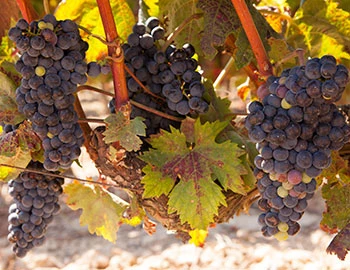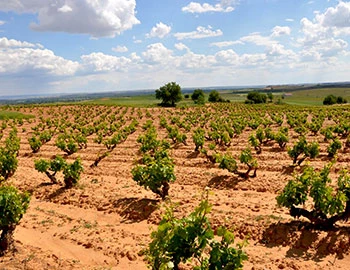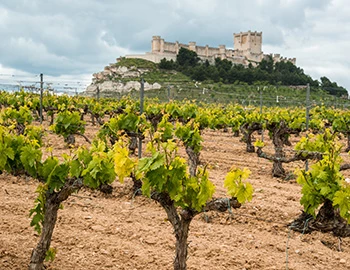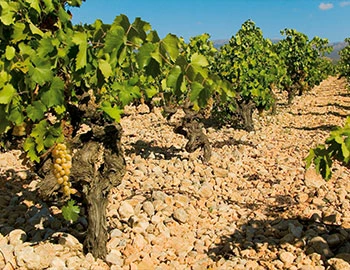
Figuero Tinus 2017
DO Ribera del Duero, Figuero, 750 ml

| Grape variety: | Tempranillo |
| Producer: | Figuero |
| Origin: | Spain / Castilla y León / Ribera del Duero |
Description
We rarely award top marks; with Tinus, this was inevitable. A fantastic, exceptional wine from old vines over 70 years in age – the best of them. It is fermented in new, open tonneaux from the finest Allier oak, after which it is aged in the same barrels. It is of a distinguished, powerful stature, less bulky and heavy than the Noble, but of incredible complexity and harmony. Its finish lingers for an extremely long time, with an extraordinary intensity on the palate. A fascinating kaleidoscope of flavours and sensations, it is a wonderful, rare wine experience! James Suckling awarded this vintage 95 points!
Attributes
| Origin: | Spain / Castilla y León / Ribera del Duero |
| Grape variety: | Tempranillo |
| Ripening potential: | 4 to 20 years |
| Drinking temperature: | 16 to 18 °C |
| Food Pairing: | Châteaubriand, Filet Wellington, Roast saddle of venison, Saddle of lamb fillet with herb jus, Beef Stroganoff, Wild specialities |
| Vinification: | fully destemmed, cooling period, fermentation in wooden barrel, Punching down, protein fining |
| Harvest: | hand-picking, strict selection |
| Maturation: | in tonneau |
| Bottling: | filtration |
| Maturation duration: | 22 months |
| Volume: | 15.0 % |
| Note: | Contains sulphites |
Tempranillo
Iberian Native
The Tempranillo is the emblem of Spain. With its juicy cherry fruit, crisp tannins, and its notes of leather and spices, it gives the Rioja its face. In the Ribera del Duero, it is known as Tinta del país. Here it turns out focused and muscular. As it has inhabited the Iberian Peninsula for centuries, it is known under countless synonyms. Across the border in Portugal, it is called Tinta Roriz, and lends colour and body to port wine. It also plays an important role in the booming wine scene of the Douro Valley. The Tempranillo owes its name to its early maturity – "temprano" in Spanish means "early". Tip: do it like they do in Spain and enjoy it with lamb.

Ribera del Duero
Ribera del Duero: Spanish temperament in a glass
The Tempranillo grape yields a particularly powerful wine with ripe berry fruit and alluring spice in the Ribera del Duero region, where it is called Tinta del País. It is no wonder that the region is seen internationally as a flagship for Spanish red wines. The designation of origin was first introduced in 1982. At the time, only few wineries existed; today, there are over 270. Many premium wines come from exceptionally old vines, sometimes over 80 years old.

Castilla y León
Castile and León: Increasing diversity
Only 30 years ago, the autonomous region of Castile and León was an almost blank spot on the European wine list. This has changed immensely thanks to three grape varieties. The Tempranillo variety yields feisty, strong wines in Ribera del Duero and Toro. And Bierzo, the small wine area in the region's northwest, has experienced an impressive ascent, thanks to the character-laden Mencia variety. Finally, the fresh and fruity Verdelho pressings from Rueda have become the most successful Spanish white wines.

Spain
Spain – Variety and perfection
“Somewhere in la Mancha, in a place whose name I do not care to remember...,” begins Don Quixote's odyssey.
The most famous part is definitely when Don Quixote thinks windmills are his enemy and wants to fight them – until they nearly kill him. It’s possible there was a bit too much of the La Mancha wine at play. Spanish vines fight for their survival in rugged landscapes, battling fierce drought and rough soils. But they fight well.


